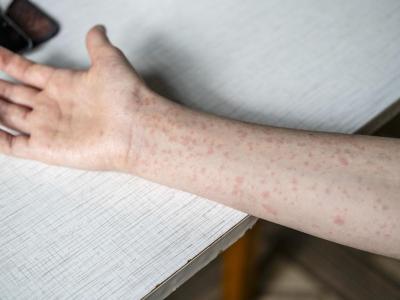Vaccine-preventable disease outbreaks are occurring more often in the United States, but so is state legislation tailored to increase childhood vaccination levels, according to a 7-year analysis published yesterday in JAMA Pediatrics.
In 2018, the same research group published a study showing that, despite rising numbers of proposed antivaccine laws, pro-vaccine bills were more likely to become law. For the current study, the team looked at how health data might affect laws.
The new findings come following a surge of measles activity in the United States this year, mostly fueled by a few large outbreaks that nearly cost the nation the measles elimination status that it achieved in 2000.
Illness trends and ensuing legislation
Researchers from Drexel University's Dornsife School of Public Health examined state data from 2010 through 2016 on 12 childhood vaccine-preventable diseases reported to health departments. They were diphtheria; Haemophilus influenzae serotype B; hepatitis A and B; influenza; pneumococcal disease; measles; meningococcal disease serotypes A, B, C, Y, and W-135; mumps; pertussis; rubella and congenital rubella syndrome; tetanus; and varicella.
Then the investigators looked at the introduction of state legislature bills in the year following an outbreak, from 2011 through 2017, that proposed expanding or reducing vaccination against the diseases.
States in which epidemics occurred experienced upticks in proposed bills to restrict vaccine exemptions. Each state averaged about 25 vaccine preventable diseases per 100,000 population, which varied year to year. Of 175 bills introduced during the study period, 53% sought to make exemptions easier and 47% would make skipping vaccinations more difficult.
Though there were more bills to relax vaccine exemptions, researchers found that increases in vaccine-preventable diseases were positively associated with increases in pro-vaccine bills that would restrict exemptions. And there was no statistically significant link between declines in vaccine-preventable diseases and proposed laws to relax vaccination requirements.
Media attention may drive action
Neil Goldstein, PhD, the study's lead author and assistant research professor of epidemiology and biostatistics at Drexel, said in a Drexel University press release that vaccines are the best tool for controlling many childhood diseases. He added that the increase they saw in laws that would cut vaccine exemptions suggests that media coverage may raise public awareness and response from lawmakers.
"While it is unfortunate it took outbreaks of preventable disease to spawn legislative action, it further affirms the widespread support of this life-saving intervention," he said.
Goldstein said the group predicts that the paradigm might apply to many other public health problems. According to the press release, Goldstein consults for Merck, a vaccine maker, but the company had no role in the study.
See also:
Nov 18 JAMA Pediatr abstract
Nov 18 Drexel University press release




















